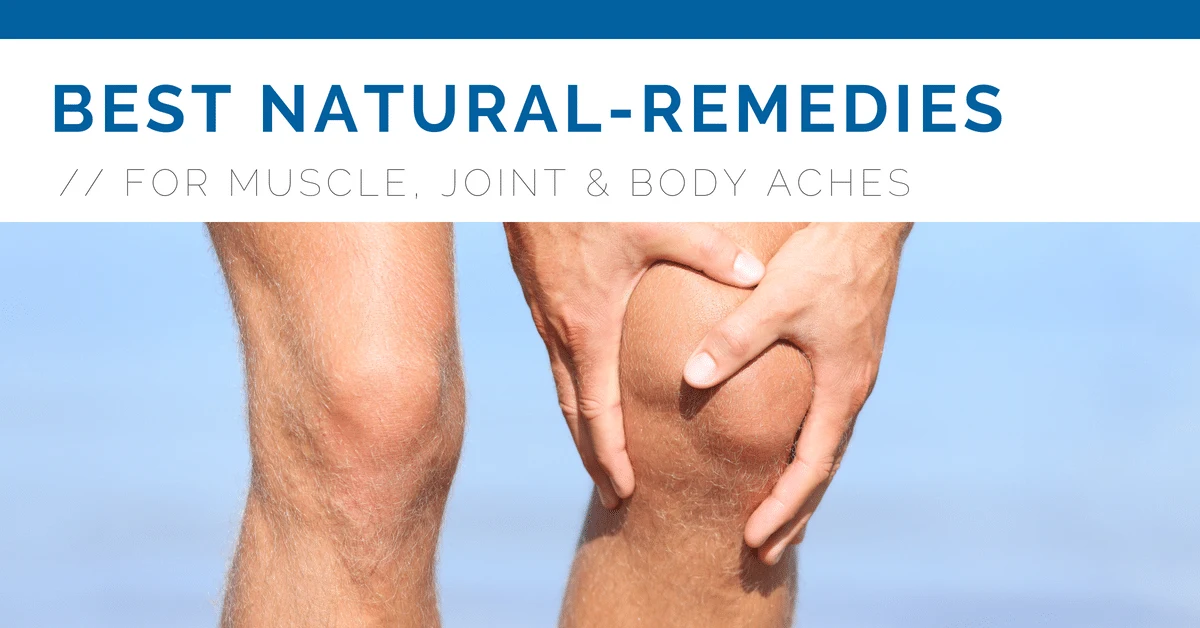
Meta Description: Soothe sore muscles naturally with these effective remedies. We explore the best natural options for pain relief and faster recovery.
Understanding Muscle Soreness
That achy feeling in your muscles after a tough workout? That's called Delayed Onset Muscle Soreness (DOMS). It usually kicks in 24-72 hours after exercise. While it's a sign your muscles are adapting and getting stronger, it can be pretty uncomfortable.DOMS is caused by microscopic tears in your muscle fibers during exercise. This triggers inflammation, leading to soreness, stiffness, and sometimes even reduced range of motion.
But don't worry! There are plenty of natural ways to ease those aches and speed up recovery. Let's dive into some of the best natural remedies for muscle soreness.
Tart Cherry Juice for Muscle Recovery
Tart cherries are packed with antioxidants and anti-inflammatory compounds. Studies suggest that tart cherry juice can help reduce muscle soreness and inflammation after exercise.How it works: The anthocyanins in tart cherry juice help to inhibit inflammatory pathways and reduce oxidative stress.
How to use it: Drink 8-12 ounces of tart cherry juice daily, ideally before and after your workouts.
Recommended product: Cheribundi Tart Cherry Juice (Typical price: $25-$30 for a 32-ounce bottle)
Topical Magnesium for Muscle Pain Relief
Magnesium plays a crucial role in muscle function and relaxation. Applying magnesium topically can help to soothe sore muscles and reduce inflammation.How it works: Magnesium can be absorbed through the skin and helps to relax muscles and reduce cramps.
How to use it: Apply a magnesium oil spray or lotion to the affected area and massage it in. You can also try a magnesium bath soak.
Recommended products:
- Ancient Minerals Magnesium Oil (Typical price: $15-$20 for an 8-ounce bottle)
- Asutra Magnesium Oil Spray (Typical price: $15-$20 for an 8-ounce bottle)
Epsom Salt Baths for Muscle Relaxation
Epsom salt is a natural source of magnesium sulfate. Soaking in an Epsom salt bath can help to relax muscles, reduce inflammation, and ease soreness.How it works: While the exact mechanism is unclear, it's thought that magnesium may be absorbed through the skin, or that the warm water helps to increase blood flow and reduce muscle tension.
How to use it: Add 2 cups of Epsom salt to a warm bath and soak for at least 20 minutes.
Recommended product: Dr Teal's Epsom Salt (Typical price: $5-$10 for a 3-pound bag)
Ginger for Muscle Inflammation
Ginger has powerful anti-inflammatory properties that can help to reduce muscle soreness and pain.How it works: Ginger contains compounds called gingerols and shogaols that have anti-inflammatory effects.
How to use it: You can consume ginger in various ways:
- Drink ginger tea.
- Add fresh ginger to your meals.
- Take ginger supplements.
Arnica for Muscle Pain and Bruising
Arnica is a herb traditionally used to treat bruises and muscle pain. It's available in topical creams, gels, and ointments.How it works: Arnica contains compounds that have anti-inflammatory effects and may help to reduce pain and swelling.
How to use it: Apply arnica cream or gel to the affected area 2-3 times per day.
Recommended product: Boiron Arnicare Gel (Typical price: $10-$15 for a 2.6-ounce tube)
Essential Oils for Muscle Soreness
Certain essential oils, such as lavender, peppermint, and eucalyptus, have analgesic and anti-inflammatory properties that can help1 to relieve muscle soreness.How they work: These oils contain compounds that can interact with pain receptors and reduce inflammation.
How to use them:
- Add a few drops of essential oil to a carrier oil (like coconut oil) and massage it into the affected area.
- Add a few drops of essential oil to a warm bath.
- Use an essential oil diffuser to inhale the aroma.
- Plant Therapy Lavender Essential Oil (Typical price: $10-$15 for a 10ml bottle)
- doTERRA Peppermint Essential Oil (Typical price: $20-$30 for a 15ml bottle)
Foam Rolling for Muscle Recovery
Foam rolling is a self-massage technique that can help to release muscle tension, improve blood flow, and reduce soreness.How it works: Foam rolling applies pressure to your muscles, which can help to break up adhesions and knots, improve circulation, and reduce inflammation.
How to use it: Use a foam roller to massage the affected muscle groups for 10-15 minutes.
Recommended product: TriggerPoint GRID Foam Roller (Typical price: $30-$40)
Rest and Recovery
One of the most important natural remedies for muscle soreness is simply rest. Give your body time to recover by taking a break from strenuous exercise or reducing your training intensity.How it works: Rest allows your muscles time to repair and rebuild.
How to incorporate it:
- Take a day or two off from exercise each week.
- Get enough sleep.
- Listen to your body and don't push yourself too hard.
Hydration and Nutrition
Staying hydrated and eating a healthy diet can also help to reduce muscle soreness and promote recovery.How it works:
- Drinking enough water helps to flush out toxins and transport nutrients to your muscles.
- Eating a diet rich in protein, carbohydrates, and healthy fats provides your body with the building blocks it needs to repair and rebuild muscle tissue.
- Drink plenty of water throughout the day.
- Eat a balanced diet that includes lean protein, fruits, vegetables, and whole grains.
Other Tips for Managing Muscle Soreness
- Apply ice: Applying ice to the affected area can help to reduce inflammation and numb pain.
- Use heat: Applying heat can help to relax muscles and increase blood flow.
- Gentle stretching: Gentle stretching can help to improve flexibility and reduce stiffness.
- Over-the-counter pain relievers: If natural remedies aren't enough, you can take over-the-counter pain relievers like ibuprofen or acetaminophen.
By incorporating these natural remedies into your routine, you can effectively manage muscle soreness, speed up recovery, and get back to doing what you love.